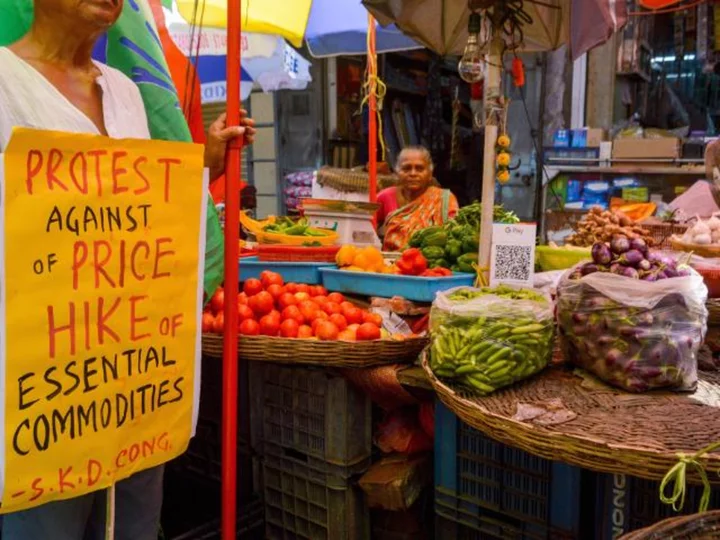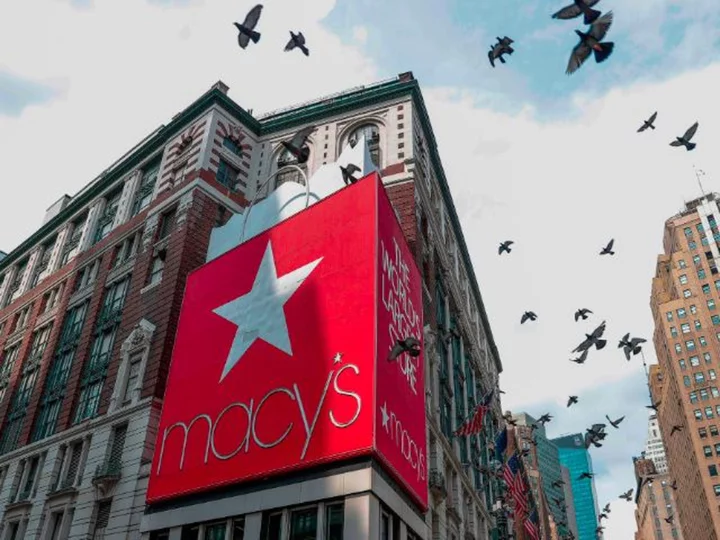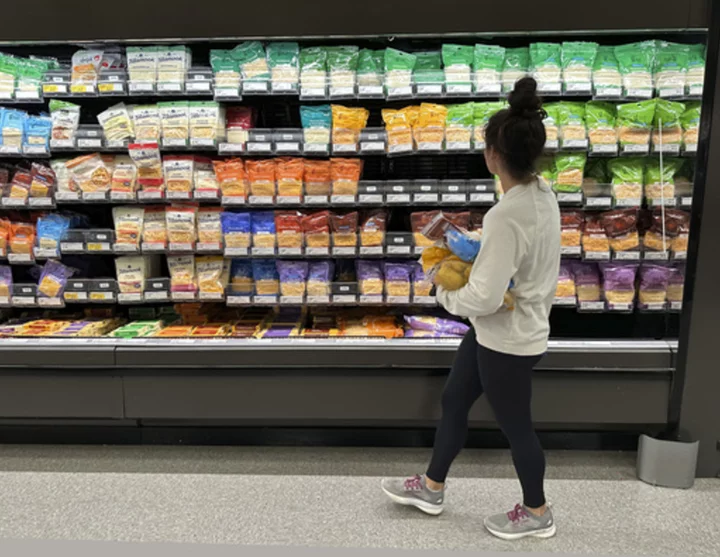From butter chicken to paneer makhani, Indian cuisine is unthinkable without the ubiquitous tomato.
But the culinary staple is now off the menu at homes and restaurants across the country after prices soared by more than 400% due to crop failures following scorching heat waves and heavy rains, according to farmers and agriculture experts.
A kilogram (2.2 pounds) of tomatoes sold in the capital New Delhi this week cost 138 rupees ($1.68), a startling fivefold jump from the 27 rupees ($0.33) recorded in January, according to data from the Department of Consumer Affairs.
Asha, a homemaker in the capital who asked to be referred to only by her first name, told CNN the increase has hit her seven-member family hard. She uses tomatoes in almost every dishes she makes.
"This tomato price hike is impacting us a lot," she said. "It's unbelievable."
"Tomatoes are an integral part of our vegetarian diet ... [but] these past couple of days, I am conscious about what I am cooking because it's so expensive."
Asha's family isn't the only ones affected. Some of McDonald's restaurants across the country have temporarily stopped serving tomatoes on their burgers, citing quality issues and shortages of supply.
Connaught Plaza Restaurants, which manages the McDonald's franchises in the north and east of India, placed signs outside impacted restaurants saying they were "not able to get adequate quantities of tomatoes which pass our world class stringent quality checks."
Photos of the notices were circulated widely on social media, including by Raghav Chadha, a member of parliament with the Aam Aadmi Party.
"Even McDonald's can't afford tomatoes anymore," Chadha wrote on Twitter. "Be it in our homes or restaurants, with inflation spiraling out of control, the government has turned happy meals into sad meals."
A driving factor behind the current shortage of tomatoes is extreme weather associated with climate change, said Jocelyn Boiteau, a post doctoral associate at the Tata-Cornell Institute for Agriculture and Nutrition.
Blistering temperatures have engulfed India and other parts of Asia in recent weeks. Globally, last week saw the hottest temperature ever recorded, according to data from two climate tracking agencies that covered multiple decades.
Climate-related reasons
India often experiences heatwaves during the summer months of May and June, but in recent years, they have arrived earlier and become more prolonged.
Last April, India experienced a heatwave which saw temperatures in the country's capital New Delhi go beyond 40 degrees Celsius (104 Fahrenheit) for seven consecutive days. In some states, the heat forced school closures, damaged crops and put pressure on energy supplies, as officials warned residents to remain indoors and keep hydrated.
India is among the countries expected to be worst affected by the climate crisis, according to the Intergovernmental Panel on Climate Change (IPCC), potentially affecting 1.4 billion people nationwide.
And experts say the the cascading effects will be devastating.
A study published in April by the University of Cambridge said heatwaves in India are putting "unprecedented burdens" on India's agriculture, economy and public health systems, stalling efforts to reach its development goals.
According to Boiteau, only a few regions in India's south have suitable conditions for growing tomatoes during the summer months, so any "climate-related issues" in those areas can have a national-level impact on the supply of fresh tomatoes.
This summer, the country has been rocked by both unprecedented amounts of rain and blistering heat waves this summer, highlighting how the world's most populous nation is among the most vulnerable to the effects of the climate crisis.
Sriram Gadve, president of India's Vegetable Growers Association, said the constant heatwaves from April to June this year meant tomato plants weren't able to flower during that period, which affected the crop yield.
"It impacted its growth and that's why [the] tomato yield this year was impacted by 70%," he said.
Of the tomatoes that were harvested, over 90% were infected by seed-born viruses, Gadve told CNN, which further exacerbated the supply shortage.
Devinder Sharma, an India-based agriculture policy expert, told CNN the current shortage was also caused in part by farmers throwing away their tomatoes because no one was buying them. While this happens to some degree each year, Sharma said "this time it was much bigger."
Gadve said prices for tomatoes should stabilize soon, as the next crop should be harvested and ready for sale within a few weeks.









